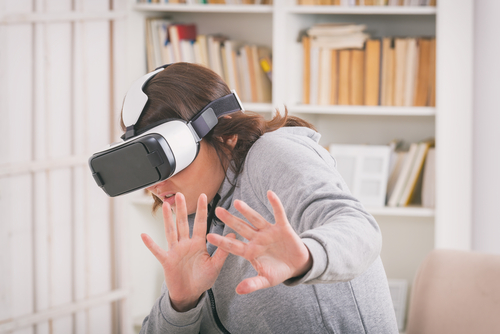Recent advances in virtual reality technology have expanded its capabilities in a variety of different fields, from conducting surgery to teaching soldiers about real-life battle applications. However, ever since the 1990’s, virtual reality has continuously been experimented with therapeutic applications. Recently, though, the usage of virtual reality has begun to ramp up as these experiments have shown how virtual reality can benefit patients with certain psychological disorders. Here is some information about the different ways that VR has been used, therapeutically…
Virtual reality exposure therapy
Exposure therapy is therapeutic technique that is used to treat different types of anxiety. It works by having the patient address their fears and anxiety and then working through those feelings in a productive way by overcoming them. Virtual reality is something that lends itself perfectly to this technique. By using virtual environments that a patient can interact with, aural and visual triggers can help a patient have to deal with traumatic circumstances.
VR exposure therapy has been shown to be incredibly useful in the treatment of PTSD. In one experiment that used virtual imagery of Iraq, researchers found that veterans from the Iraq war were able to reduce their anxiety by exploring this environment and having to learn coping mechanisms from triggers within the virtual world. In this way, other treatments have been developed to help patients who have extreme phobias in the real world by exposing them to these fears in a safe environment.
Immersion to battle depression
Researchers have found that virtual reality treatment has been incredibly useful in helping patients with mild to moderate cases of depression work through negative thoughts. There are couple of ways that this has been explored. In the UK, the National Institute of Health and Clinical Excellence put forth that immersion in a peaceful and relaxing virtual reality environment could be an ample substitute for antidepressants.
In New Zealand, a team of researchers at Auckland University created a virtual world that allowed patients to battle negative feelings with coping techniques through the place of a virtual avatar in a fantasy environment. This displacement of using an avatar that is controlled by the patient helps them gain insight into their own lives.

